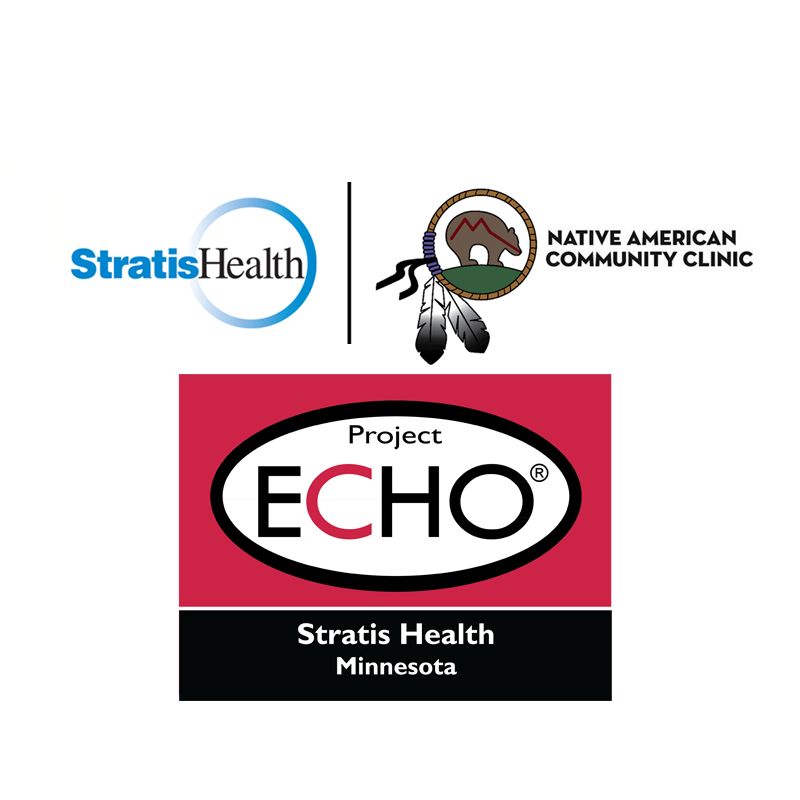Midwest Tribal ECHO
Minnesotan American Indians are five times more likely to die from a drug overdose than their white counterparts. To address this crisis, we are supporting clinicians and care teams that serve the 11 tribal nations tribes of Minnesota and the urban American Indian communities in Minnesota.
Stratis Health is providing Opioid and Harm Reduction Project ECHOs (Extension for Community Care Outcomes) for the Minnesota Department of Human Services (DHS), one for rural and underserved communities, and one in partnership with the Native American Community Clinic, to support the tribal nations in MN. This ECHO model provides knowledge-sharing approaches to teams to build their capacity to deliver high-quality care in their communities. As part of this ECHO model, we held two well-attended statewide boot camps. Stratis Health is using the ECHO Model to increase access to medication for opioid use disorder (MOUD) treatment for opioid use disorder among underserved, rural, and urban communities including American Indian peoples.
Our approach focuses on engaging participation among clinicians and care teams serving tribal nations. We invite clinicians and care teams serving MN tribal nations as well as the urban communities serving American Indians to join our ECHO sessions.
Actions:
- We approach our harm reduction work by leveraging a culturally and patient-centered framework.
- We recognize that trust is essential between our team and ECHO participants, and between community leaders and American Indians experiencing OUD and SUD.
- We facilitate bi-directional learning for community experiences, insight, and expertise.
- We expand the continuous knowledge with evidenced-based practices and disseminate through the ECHO model.
We make lives better by…
- Facilitating culturally responsive, promising practices for treating substance use disorders, specifically but not limited to opioid use disorder (OUD).
- We get the right knowledge to the right people and places at the right time to help reduce the health disparities and inequities for people with addiction

